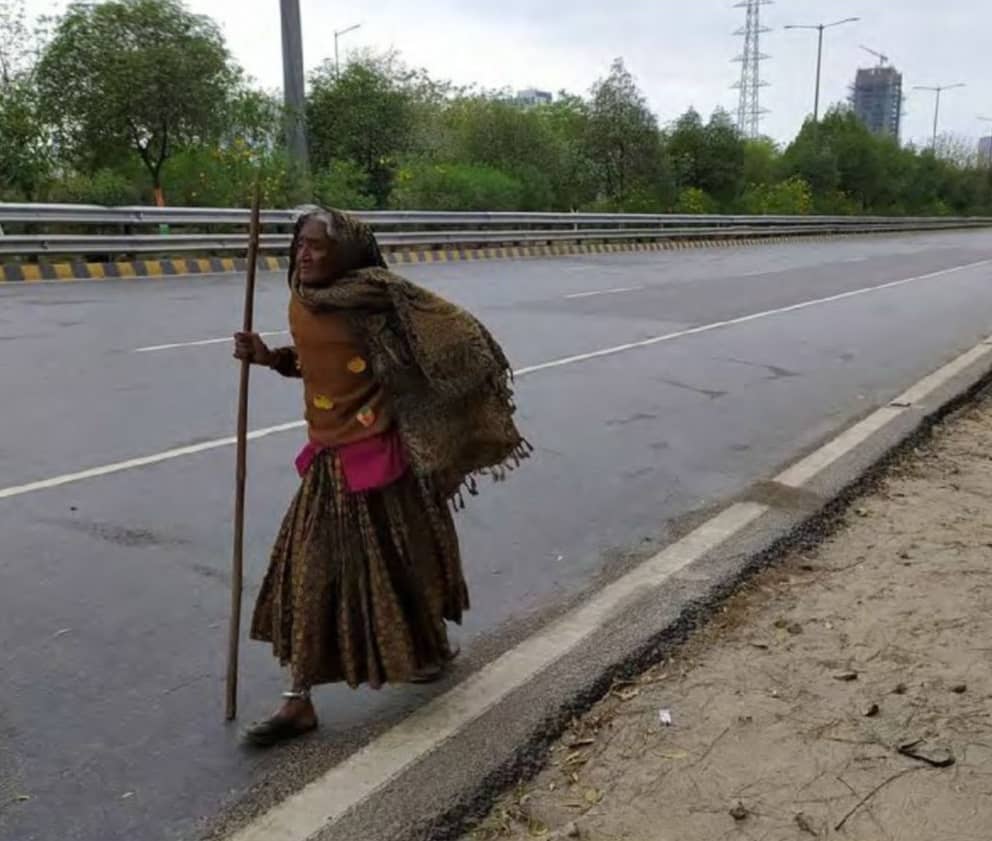
KAJODI was a powerful image. A lonely figure, the vast emptiness of the Noida-Greater Noida Expressway and the horizon dotted with high-rise buildings. In the aftermath of the national lockdown announced on March 24, the 90-year-old was trying to walk from Delhi-NCR to her village in Rajasthan, some 400 km away. The image infuriated me. Then it depressed me. Trained as a scientist—a biochemist and virologist to be exact—I was in demand for my views on the coronavirus outbreak. Relying on public health principles, I was advocating social distancing and a lockdown…. But wasn’t I being completely blinkered by the science, and not paying attention to the “public” in public health? Indeed, I was…and I was angry with myself.
How dare I sit in the comforts of my South Delhi apartment and pontificate to people living on the edge? How would I explain, let alone justify, “social distancing” to someone who lives in an urban slum in Delhi or a chawl in Mumbai? One room with five or six people? My anger turned to depression. Over the next fortnight and more, as we navigated to the end of one lockdown and the beginning of an extension, a variety of other conflicted emotions too overwhelmed us. What have we scientists learnt, experientially? How must science look upon these scenes that confront it from the world out there, the world beyond the research lab? Here, I put down some of my thoughts and feelings—hopefully, we can turn our doubts into the outlines of a collective interrogation of science in society.
Bu hikaye Outlook dergisinin April 27, 2020 sayısından alınmıştır.
Start your 7-day Magzter GOLD free trial to access thousands of curated premium stories, and 9,000+ magazines and newspapers.
Already a subscriber ? Giriş Yap
Bu hikaye Outlook dergisinin April 27, 2020 sayısından alınmıştır.
Start your 7-day Magzter GOLD free trial to access thousands of curated premium stories, and 9,000+ magazines and newspapers.
Already a subscriber? Giriş Yap

No Singular Self
Sudarshan Shetty's work questions the singularity of identity

Mass Killing
Genocide or not, stop the massacre of Palestinians

Passing on the Gavel
The higher judiciary must locate its own charter in the Constitution. There should not be any ambiguity

India Reads Korea
Books, comics and webtoons by Korean writers and creators-Indian enthusiasts welcome them all

The K-kraze
A chronology of how the Korean cultural wave(s) managed to sweep global audiences

Tapping Everyday Intimacies
Korean filmmaker Hong Sang-soo departs from his outsized national cinema with low-budget, chatty dramedies

Tooth and Nail
The influence of Korean cinema on Bollywood aesthetics isn't matched by engagement with its deeper themes as scene after scene of seemingly vacuous violence testify, shorn of their original context

Beyond Enemy Lines
The recent crop of films on North-South Korea relations reflects a deep-seated yearning for the reunification of Korea

Ramyeon Mogole?
How the Korean aesthetic took over the Indian market and mindspace

Old Ties, Modern Dreams
K-culture in Tamil Nadu is a very serious pursuit for many